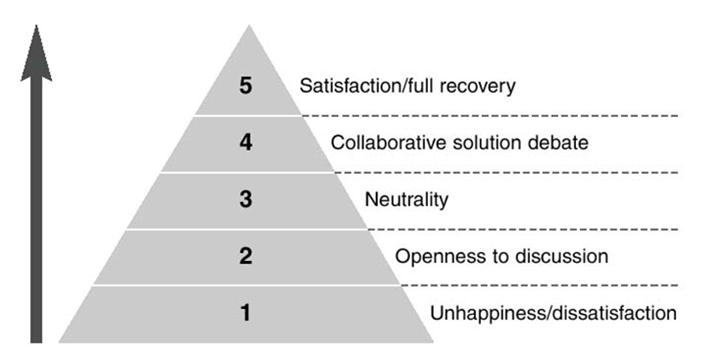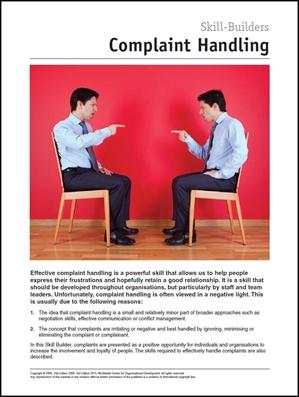
All leaders face the problem of juggling competing demands and expectations, and sometimes this requires us to deal with complaints when expectations haven’t been met. When this happens, It is easy to take the view that some complaints are simply trivial or even false, especially when made by an active complainer. This can lead to very negative feelings towards the person and unwillingness to be helpful in some cases. Leaders who are good at handling complaints do not make these kind of judgments and instead try to adopt a resolution-focused mindset from the outset. One way in which to quickly do this is to engage in “brainstorming” with the individual.
In this instance brainstorming means not just generating new ideas, but working with the individual to clarify exactly what the problem is and, if possible, make a change in order to satisfy the individual. By using both questions and suggestions to gain the information needed, the leader encourages the individual to be present and future focused, rather than to dwell on the disappointments of the past.
Five stages in transforming a person’s outlook

When engaging in brainstorming, it is useful for the leader to know that research suggests that there are five stages that typically occur in transforming a complainant’s outlook. Let’s look briefly at each of these 5 stages:
Unhappiness/dissatisfaction
This stage is clearly not a positive one and needs to be as short-lived as possible for both parties. However, for the leader, it is a time when he or she should be carefully listening or even taking notes on the problem.
Openness to discussion
This stage may still not be very positive but at least the person will have moved on from a mainly one-sided “barrage” and will hopefully now allow some questions to be asked and clarification to occur.
Neutrality
This stage is usually neither positive nor negative but at least both parties will allow issues and points to be aired and suggestions as to the way forward to be tentatively put.
Collaborative solution debate
This stage is reasonably positive and often involves both joint brainstorming activity and negotiation to occur (which we will be looking at as the final step in our model).
Satisfaction/full recovery
This stage obviously is positive (as long as it is fully reached of course) as the individual has hopefully transitioned form being dissatisfied to happy with the solution and the process they have experienced.
It is important to remember that each of these steps is a discrete stage in thinking or perception and progression needs to be tracked and managed carefully. This can be done in just a few seconds in skilful hands but sometimes it may take much longer with several conversations having to take place.

This short, practical, 12-page booklet on the topic of Complaint Handling takes the view that positive complaint handling is very important and in fact, it should be seen as a positive area of key feedback from people to help make changes for the better. eResource.



Comment here